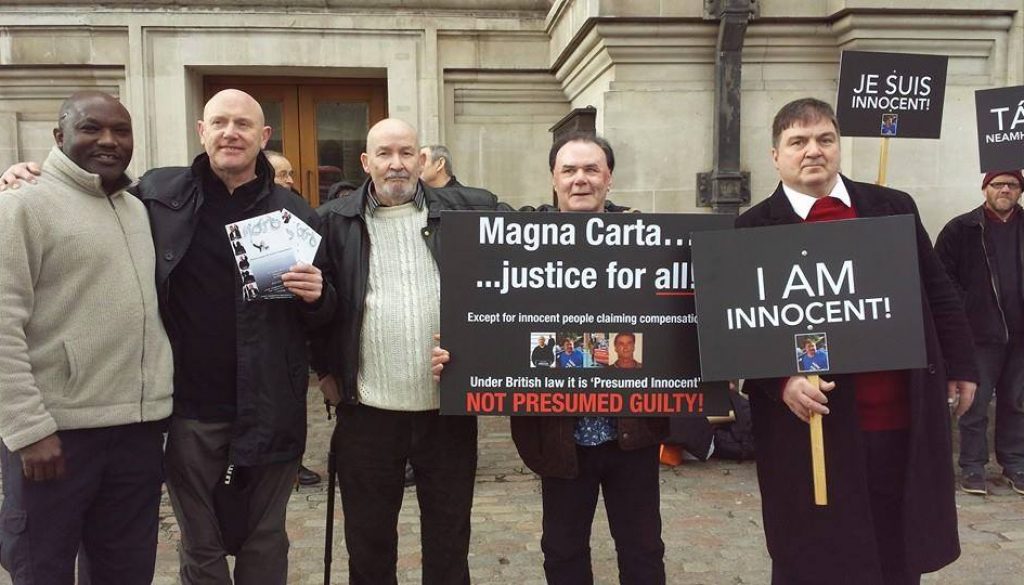The Forgotten Victims
A recurring theme in recent articles here has been the emphasis on victim support apparent in current government policy in Scotland. There is, of course, nothing wrong with the active and meaningful support of victims of crime. It is the mark of a compassionate society, a society that takes responsibility when lives are blighted by the malice, or by the failure, of others.
What is harder to understand, or to admire, is the calculated exclusion from such support of one, single, class of victim.
In our aftercare and reintegration work this organisation receives, and is grateful for, financial support from the Scottish Government. We rely on that support to enable us to do the work that we do. At the same time, however, we are limited in what we can do by the funding we receive. More limited, certainly, than those other third sector organisations who support other, more visible, classes of victim. Significant sums are allocated, expressly, for victim support and are distributed among those organisations. Their service-users are, by their access to this funding, recognised as victims. We are excluded from this funding. By extension, our clients are denied this recognition.
This isn’t just about money. Consultation by government on proposed changes to the law is extended to “stakeholders” who include, invariably, victim support organisations. Again, there’s nothing wrong with that. But victims of miscarriage of justice are excluded from this process too. And therein lies the reality. Miscarriage of justice victims don’t have a stake in the criminal justice process.
The explanation we’ve been offered – because we asked – is that our class of victim aren’t victims of crime, and that their participation in the development of the law would be “inappropriate”. This is, frankly, puzzling. Were I to be convicted of someone else’s crime I would surely be a victim of that crime. Were I to be convicted on a false allegation of a crime that never took place, I would surely be the victim of a different crime. And whatever the circumstances, were I to be wrongly convicted of any crime I would surely be a victim of the failure of the state’s criminal justice system. In all these cases, I would surely have a stake in the improvement of that system.
Back to money. The victims of criminals have access to compensation through the Criminal Injuries Compensation Authority. There is no need for anyone to have been convicted, and the claim is assessed on the balance of probabilities, ie whether it is more likely to be legitimate than not. Fair enough. Contrast this, however, with a claim for compensation for a miscarriage of justice, under the current statutory arrangements. Anyone who has already been exonerated by the Appeal Court – which must, by definition, have been satisfied that they have been the victim of miscarriage of justice – must then satisfy the government that their conviction was quashed because fresh evidence proves, beyond reasonable doubt, that they have been the victim of a miscarriage of justice. This is remarkably restrictive, and the standard of proof is significantly higher than that required of the CICA claimant. Apparently, the court’s decision isn’t good enough – and the arbiter of reasonable doubt is, incidentally, the government. The situation is marginally worse in England, where an already exonerated claimant must prove his innocence, again beyond reasonable doubt. Sam Hallam and Victor Nealon could tell you about that. And so could Barry George.
Here in Scotland, our own Jimmy Boyle’s compensation claim was refused by a government which effectively altered his verdict to suit that decision. Acquitted at re-trial, they declared that, because his verdict had been “not proven”, he hadn’t really been exonerated. A legal nonsense to mask a moral outrage.
The numbers speak for themselves. The Appeal Court in Scotland recognised 110 miscarriages of justice, in solemn appeals alone, in the five years to 2017. The total number of exonerees compensated by the Scottish Government in the seventeen years from 2000 to 2017 was 18.
At MOJO we welcome the support, both moral and financial, offered to victims of crime. We applaud the excellent work done in the third sector in its delivery. We believe, however, that the shameful denial of recognition to the victims of miscarriage of justice – which serves only to heap injustice on injustice – disfigures the exercise and strips it of its moral authority. If we are to support victims, as we certainly should, then we must include in that process all victims, regardless of the hand at which they suffer. Even, and perhaps particularly, where that is the hand of the state.

![16[2]](https://mojoscotland.org/wp-content/uploads/2024/06/162-1024x768-394x330.jpg)

